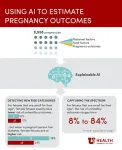Australian cancer researchers are the first to establish a next-generation gene-editing tool for modelling and interrogating human disease.
A novel pre-clinical model expressing an enhanced version of a new genome-engineering enzyme called Cas12a was generated by researchers at the Olivia Newton-John Cancer Research Institute (ONJCRI), WEHI and Genentech, a member of the Roche Group.
Cas enzymes are required to cut specific sections of DNA or RNA during CRISPR experiments. CRISPR is a revolutionary gene-editing tool widely used for cancer research, which is currently in the early stages of clinical application in patients.[1]
The researchers were also able to identify genes that led to accelerated lymphoma growth in the pre-clinical model by using unique Cas12a-compatible mouse whole-genome CRISPR “libraries”.
This new research contributes to a better understanding of the limitations of CRISPR technology, with the ultimate goal of making it a viable option for cancer treatment in patients.
Over the past decade, the most widely used Cas enzyme, Cas9, has led to many important discoveries in medical research.[2]
Postdoctoral Researcher at the ONJCRI and WEHI Dr Eddie La Marca, who is a co-lead author on the paper published in Nature Communications today, said:
“This is the first time Cas12a has been used in pre-clinical models, which will greatly advance our genome engineering capabilities. In contrast to Cas9, Cas12a can delete multiple genes at the same time with extremely high efficiency.”
The researchers also used Cas12a in combination with other genome engineering tools, allowing for “multiplexed” gene manipulation. Co-lead authors Ms Wei Jin and Dr Yexuan Deng (ONJCRI and WEHI) elaborated on this:
“We have also crossed our Cas12a animal model with a model that expresses an altered version of Cas9, allowing us to both delete and activate different genes simultaneously. This will allow researchers to use this tool to model and interrogate complex genetic disorders."
Professor Marco Herold, Chief Executive Officer of the ONJCRI and Head of the La Trobe University School of Cancer Medicine, said:
“We are certain that this work will encourage other research teams to use this Cas12a pre-clinical model which, in combination with the screening libraries, are a powerful new suite of gene-editing tools to improve our understanding of the mechanisms behind many different cancers.”
Professor Herold’s team at the ONJCRI are also focusing their efforts on developing methods to administer CRISPR-based therapies to patients, highlighting the growing importance of gene-editing tools such as Cas12a.
Professor Herold said: “This Cas12a pre-clinical model will also be instrumental to advancing our understanding of how CRISPR tools could be translated to clinical usage.”
This research was made possible with thanks to generous funding from the National Health and Medical Research Council (NHMRC) and Phenomics Australia.
ENDS
MEDIA CONTACT
Philippa Bosquet, Marketing & Communications Manager, philippa.bosquet@onjcri.org.au +61 3 9496 9389
AVAILABLE FOR INTERVIEWS
Professor Marco Herold, CEO of the ONJCRI and Head of the School of Cancer Medicine at La Trobe University.
About the Olivia-Newton John Cancer Research Institute (ONJCRI)
The ONJCRI is a leader in the discovery and development of innovative and breakthrough cancer research and treatments.
Based at the Austin Hospital in Melbourne, the ONJCRI’s world-class laboratories are located just metres from hospital beds, allowing researchers and clinicians to work closely together and translate scientific discoveries into clinical trials to improve treatment options for patients.
Our researchers bring observations from the clinic back to the laboratory bench to create a continual cycle of learning and improvement between scientific research and clinical applications.
Our research is primarily focused on investigating and developing treatments for cancers of gastrointestinal tract, brain, breast, lung, skin, and rare cancers. We also undertake research in understudied rare cancers and proactively look for opportunities to extend our efforts to other cancers and diseases. For more information visit www.onjcri.org.au.
The ONJCRI is an independent medical research institute and is affiliated with La Trobe University as the School of Cancer Medicine.
About the Walter and Eliza Hall Institute of Medical Research (WEHI)
WEHI is where the world’s brightest minds collaborate and innovate to make life-changing scientific discoveries that help people live healthier for longer. Our medical researchers have been serving the community for more than 100 years, making transformative discoveries in cancers, infectious and immune diseases, developmental disorders, and healthy ageing. WEHI brings together diverse and creative people with different experience and expertise to solve some of the world’s most complex health problems. With partners across science, health, government, industry, and philanthropy, we are committed to long-term discovery, collaboration, and translation. At WEHI, we are brighter together.
Find out more at www.wehi.edu.au
Publication in Nature Communications available at: https://www.nature.com/articles/s41467-025-56282-2
[1] https://www.onjcri.org.au/latest-news/advanced-crispr-gene-editing-technology-coming-to-the-olivia-newton-john-cancer-research-institute/#:~:text=%E2%80%9CCRISPR%2Dbased%20gene%20editing%20technology,and%20potentially%20new%20cancer%20medicines.%E2%80%9D
[2] Khan, S., Mahmood, M.S., Rahman, S.u. et al. CRISPR/Cas9: the Jedi against the dark empire of diseases. J Biomed Sci 25, 29 (2018). https://doi.org/10.1186/s12929-018-0425-5
END




